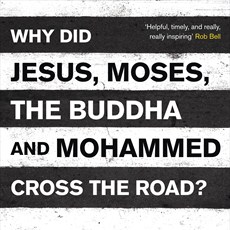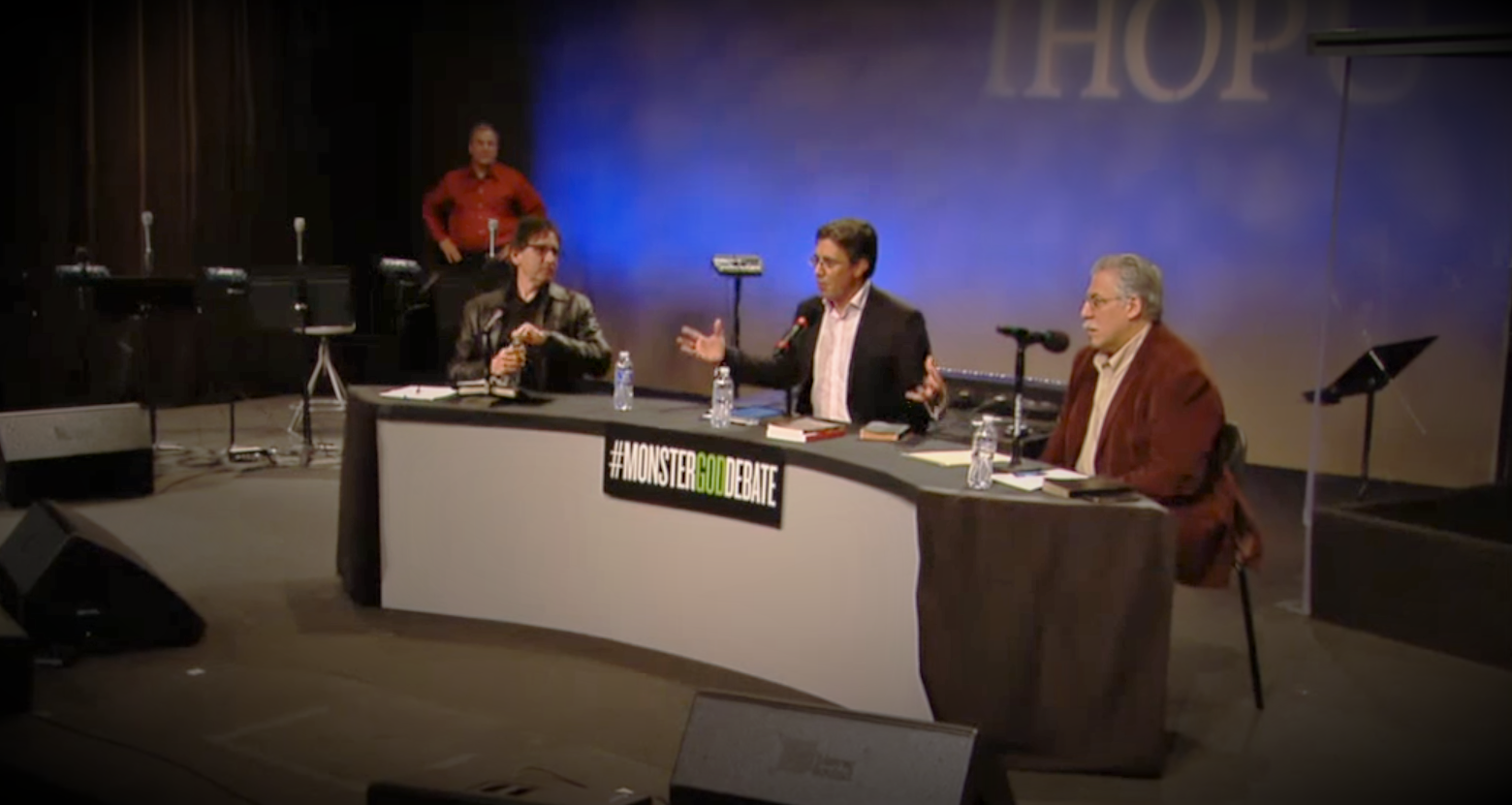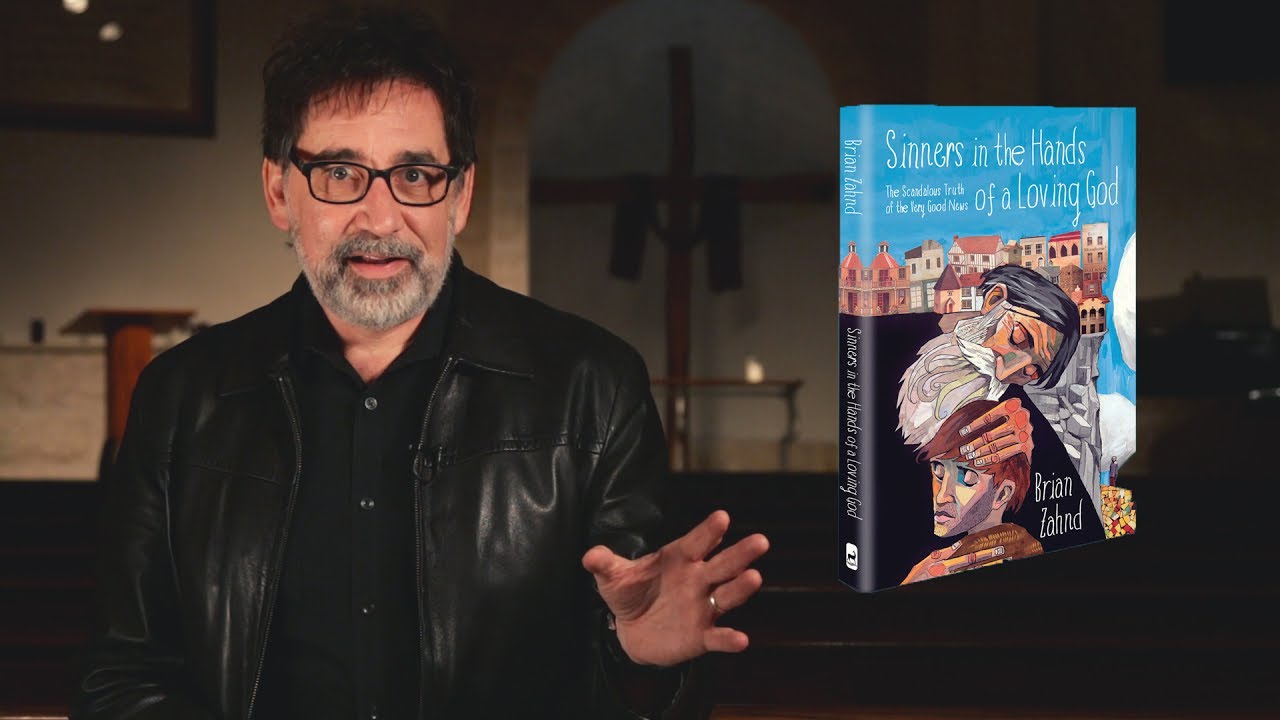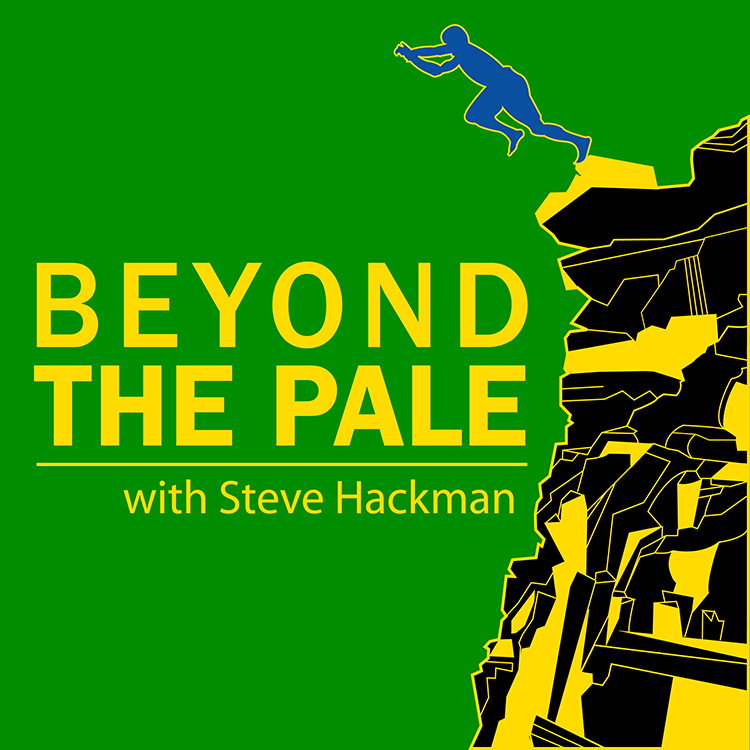Brian McLaren and Why Jesus, Moses, the Buddha, and Mohammed Crossed The Road
 Within the Christian community the name Brian McLaren elicits either declarations of gratitude or cries of “heretic” depending on where one stands on a number of theological issues.
Within the Christian community the name Brian McLaren elicits either declarations of gratitude or cries of “heretic” depending on where one stands on a number of theological issues.
The gratitude part tends to come from people who want to follow Christ but are put off having to accept the package he often comes wrapped in. The “heretic” moniker is usually leveled by more traditional elements of the evangelical church who tend to frown on the way McLaren overturns tables in their temples.
That said, McLaren’s new book, Why Did Jesus, Moses, the Buddha, and Mohammed Cross the Road? will give the gratitude crowd more to be grateful for while the “heretic” crowd will, well, they won’t read it but will certainly declare it heretical anyway.
The Focus
McLaren writes Why Did Jesus with a desire to help Christians maintain their Christian identity in an increasingly pluralistic world. He argues that a Christian’s attitude toward people of other religions has been primarily seen through two different paradigms. Conservative forms of Christianity tend to have a “strong / hostile” attitude characterized by a strong Christian identity with a hostile view of other beliefs. More liberal forms of Christianity in contrast tend to have a “weak / benign” paradigm (i.e. a weaker Christian identity but perceived to be more benign to other religions)
McLaren says in fairness the conservatives don’t desire to be hostile per se, but in their genuine desire for a strong Christian identity it can, unfortunately, manifest as hostility to their non-Christian neighbors. Like wise liberal Christians don’t necessarily desire a weaker Christian identity, but it can be the unwanted result of a focus on maintaining a benign attitude in a multi-faith setting.
Mclaren though suggests that both of these paradigms are in error. That Jesus, in fact, demonstrates a better way; one characterized by a strong Christian identity underpinned with a benevolent relationship to those outside the faith.
Embracing “the Other”
The book’s title is a play on the “What happened when the chicken crossed the road” joke. McLaren suggests that Jesus crosses the road to get to “the other”.
But God showed his great love for us by sending Christ to die for us while we were still sinners (“the other”).
Romans 5:8
In recorded civilization there has been the historical conflict between “us” and “them”. Them is “the other”; those outside our race, culture, religion and tribe. They are the ones who don’t fly our flag, wear our colors, or support our team.
Those are the ones Jesus embraced, gave a voice to, and ultimately died for!
He showed us that the way to demonstrate our belief in him was not how we treated “us” (our team) but how we treated “them” (the other).
But Mclaren argues the fear of “us” is a more manipulative force on Christians than any fear produced by “the other”:
Ironically, Us can be as great a threat to each of us as the Other is, probably greater. Us might withdraw its approval of me. It might label me disloyal, unsupportive, unbeliever, unorthodox, liberal,anathema, etc. To be rebuked, marginalized, or excluded by Us is and even greater threat than to be attacked by the Other…
…Our fear becomes all the more acute when we venture to do what many of us in this dialogue are doing; we are daring to defend and humanize the Other.
Brian McLaren “Why did Jesus”- pg 47
I’ve been in Christian settings like that. Where someone suggests the genuine love a Muslim or a Jew may have toward God only to watch the uneasy silence and shifting in seats of those in attendance. There is a fear that somehow we not being “faithful” if we don’t counter such a suggestion.
But it doesn’t have to be so…
Throughout the book McLaren provides a road map using anecdotes, history, and the pattern Christ showed us in the scriptures on how a “strong / benevolent” identity can be cultivated in the church today.
In order for that to happen though we may need to risk crucifixion at the hands of Us in order to reach out with compassion to the Other.
Related
-
Uncategorized
A Farewell To Mars: Brian Zahnd Announces Christ’s Kingdom To American Christians (but are they willing to join it?)
By Steve -
Uncategorized
Rhett & Link Abandon Jesus? 5 Reasons To Think Otherwise
By Steve
-
Uncategorized
Finding God at The Movies: Iron Man 3
By Steve -
Books / Christianity / Coast to Coast Hike
Day 0: St. Bees
By Steve -
Uncategorized
Two Views On God’s Wrath (or What Type Of “Justice” Are You Looking For?)
By Steve
-
In Memorium / Uncategorized
Why Mandela Matters!
By Steve -
Books / Jesus Movement / Podcast / Politics
Episode 059: Sinners in the Hands of a Loving God with Brian Zahnd (pt.1)
By Steve
-
Uncategorized
Weekend Distractions: My Academy Award Predictions 2015
By Steve -
Uncategorized
Tennessee Official Seeks Protection From God’s Wrath Over Gay Marriage Legalization
By Steve
-
Uncategorized
My Big Fat Greek Weddi….I mean adventure! (Pt. 1)
By Steve

